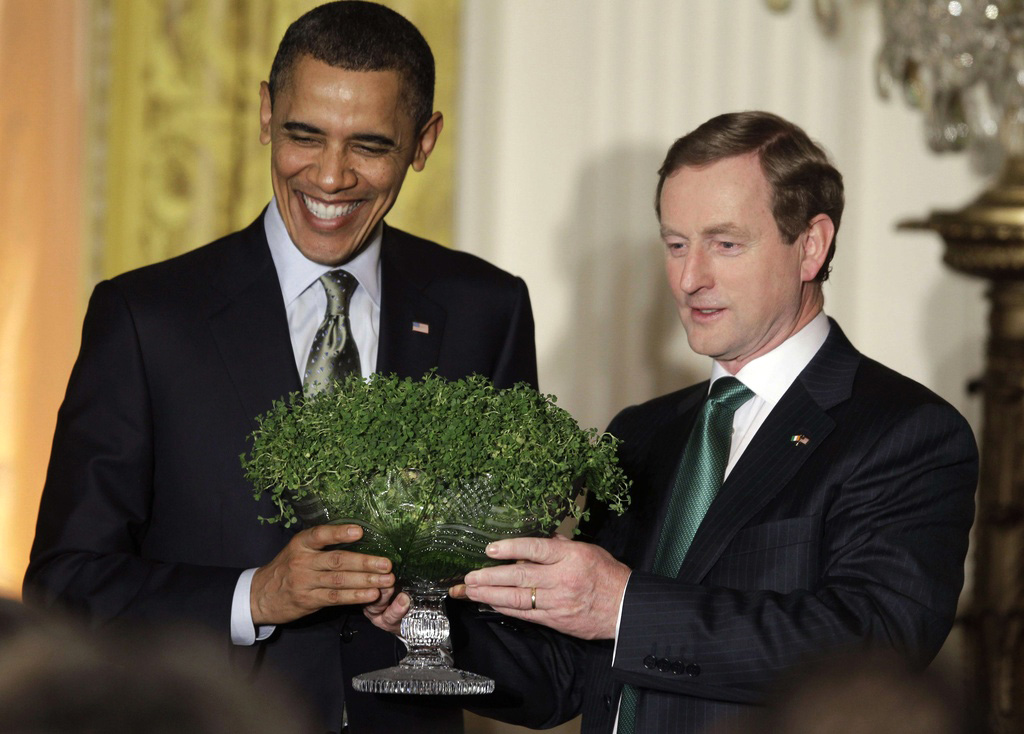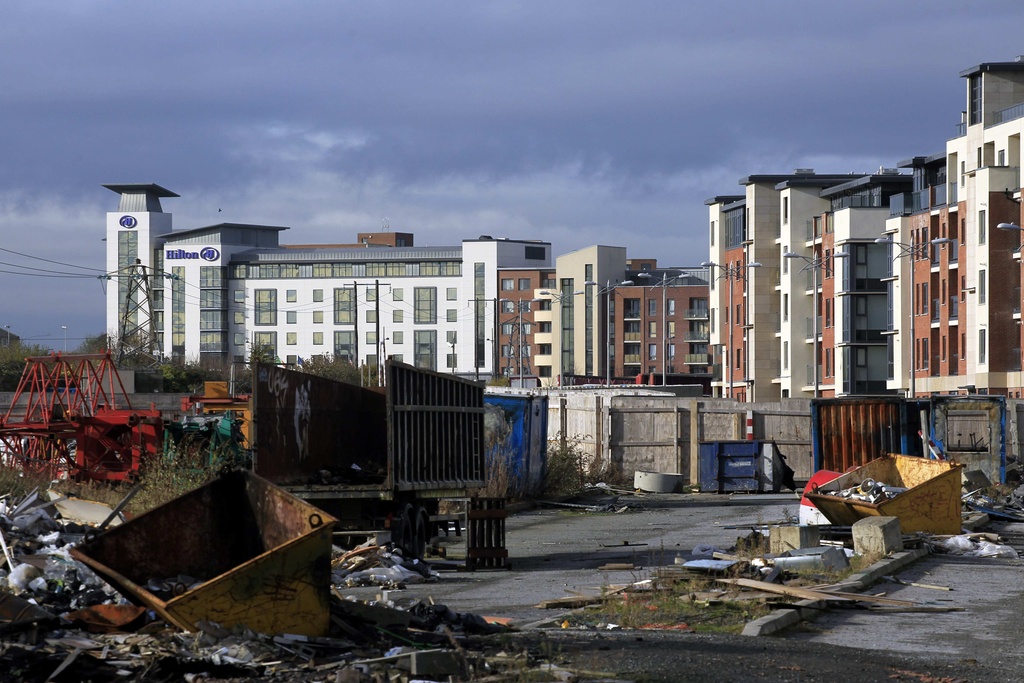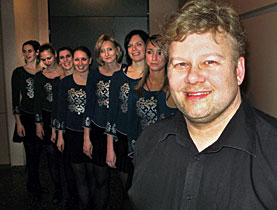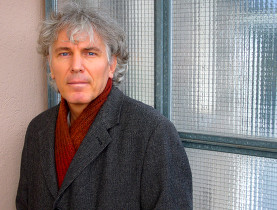Swiss-based Irish upbeat on Ireland’s future

Recently all Irish eyes abroad, including in Switzerland, have been on the elections in the home country. Ireland has a new government.
Following the sovereign debt crisis that hit the country late last year, voters punished the governing Fianna Fáil party and its Green allies, but awarded no opposition party an absolute majority.
The task of forming a new government fell to a coalition of the two main opposition parties, Fine Gael and Labour. Fine Gael leader Enda Kenny became Taoiseach (prime minister) and he appointed a coalition cabinet with Labour leader Eamon Gilmore as his deputy and minister of foreign affairs.
Ironically enough, though the Irish have not been in the mood for celebrating much of late, the first task of the new government was to mark St Patrick’s Day, the national festival on March 17. This is celebrated on a larger scale by the Irish-American diaspora than by the Irish at home.
swissinfo.ch spoke to some of the estimated 4,000 Swiss-based Irish at a St Patrick’s Day reception hosted by the Irish embassy in Bern and asked them what they thought of the new government and its chances.
Valerie Guertler-Doyle is a scientist working for the pharmaceutical industry in Basel. She is also president of the Irish Business Network in Switzerland.
“We are keeping our fingers crossed,” she told swissinfo.ch. “We can only hope they can pull it off. It got to a stage where no-one believed what the previous government was saying. People are now prepared to give these guys a chance.”
Opportunities for firms
Reflecting on the Irish diaspora, and the recurring economic uncertainty that has kept it large and emigration a common experience, Guertler-Doyle said: “I came here in the 1980s when there were no jobs at home. Unfortunately, we have been educating our young people for export.”
She finds cause for optimism in the work of the Irish Business Network, however. “We have been bringing in Irish companies and introducing them to the Irish working in Switzerland with a view to creating opportunities for those Irish companies and Irish exports. I think it is doing some good.”
Retired teacher Máire O’Dea was on a visit to Switzerland, and sounded enthusiastic about the new political situation. “I voted before I left, and now I’ll be returning to a changed country,” she said. “This government is going to be a new broom.”
There had been much resentment of the privileged lifestyle of government ministers, she said. “All those ministerial expenses will go, and that is a good thing.” Her sister had just told her from Ireland that there was a new lightness in the air.
Reliance on credit
In contrast, Peter Cunningham, an accountant working in the banking industry in Zurich, is not convinced that political change can make much of a difference to the difficulties the country is facing.
“The change of government is completely irrelevant,” he said bluntly. “The EU and the IMF are going to be controlling things for the next ten years. So what can you do?
“ If you can’t attract funding from the international bond markets, there’s not much you can do. We are now relying on more expensive credit from the European Central Bank and the IMF. It’s like a noose around the country’s neck,” Cunningham said.
Breffni O’Sullivan is an airport staffer in Zurich. He is also president of the Irish Club in Zurich. Previously he worked in Geneva.
“Ireland will bounce back from this crisis,” he told swissinfo.ch. “We have bounced back in the past. Look – Irish people are well-educated, they stick at things, they are proactive, they are prepared to travel, and they are experts at integrating, wherever they go.”
And the change of government? “Change can only be good,” said O’Sullivan.
“What Fianna Fáil did worked for ten years, obviously, and they can take credit for it – but then it just didn’t work any more… We have to learn to take responsibility for our past mistakes – especially the way we abused easy credit.,” he said.
“We have to learn now to live within our means. It’s no good just blaming the government, which we tend to do. The Swiss are better at this; they’re a model for other countries to learn from. And they certainly regulate credit better.”
Ireland was known as the Celtic Tiger and enjoyed a ten-year economic boom from the mid-1990s till 2008. Not only did emigration all but disappear, but Ireland became an immigrant-receiving state, especially from eastern European countries like Poland and Lithuania.
But financial regulation in the Republic was ineffective. At the same time, consumers were borrowing heavily to finance sometimes extravagant lifestyles.
Then came the international financial crisis, which affected banks worldwide as they realised the extent of their exposure to bad credit. The Irish government moved to guarantee the stability of the Irish banks. The cost to the Republic’s taxpayers was going to be huge, and the government was increasingly unable to finance its debt on the international bond markets. The EU and the European Central Bank moved to force Ireland to accept a bailout like Greece so as to be able to fund its banks, which were endangering the stability of the euro zone.
Under the terms of the bailout, Ireland was to get loans from the ECB and the IMF so that it would not need to go to the international bond market for several years. In return, the Fianna Fáil and Green Party coalition government committed themselves to an unpopular programme of cost cutting. The government did not survive this unprecedented crisis and was voted out of office on February 25.
The first Irishman in Switzerland was probably St Columban or Columbanus, who on his missionary travels in the seventh century preached in the Zurich region. His disciple St Gall or Gallus settled on the site that would later become known as St Gallen. A later disciple, St Otmar, founded the monastery and city of that name. Generations of Irish monks spent time there in the Middle Ages.
The next famous visitors were the Earls O’Neill and O’Donnell, who in the episode known in Irish history as “the Flight of the Earls” left their country after an unsuccessful war of independence against England. On their way to Rome in 1608, they passed through Basel and Lucerne, and even crossed the Devil’s Bridge near Andermatt in midwinter – with the loss of one packhorse carrying part of their treasure!
In more recent times Irish people have flocked to centres like Basel to work in the pharmaceutical industry, or in banking in Geneva or Zurich. There are Irish clubs in Geneva, Basel and Zurich, and there is also an Irish Business Network in Switzerland sponsored by Enterprise Ireland, the agency of the Irish government that aims to build up Irish businesses and exports to other countries.

In compliance with the JTI standards
More: SWI swissinfo.ch certified by the Journalism Trust Initiative



You can find an overview of ongoing debates with our journalists here. Please join us!
If you want to start a conversation about a topic raised in this article or want to report factual errors, email us at english@swissinfo.ch.